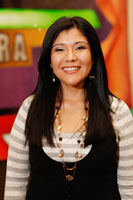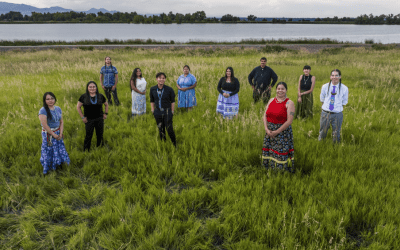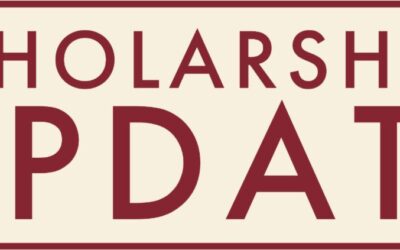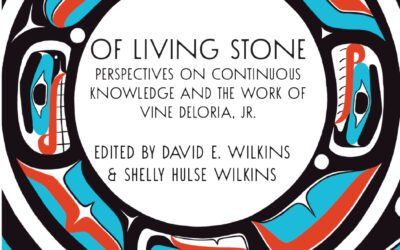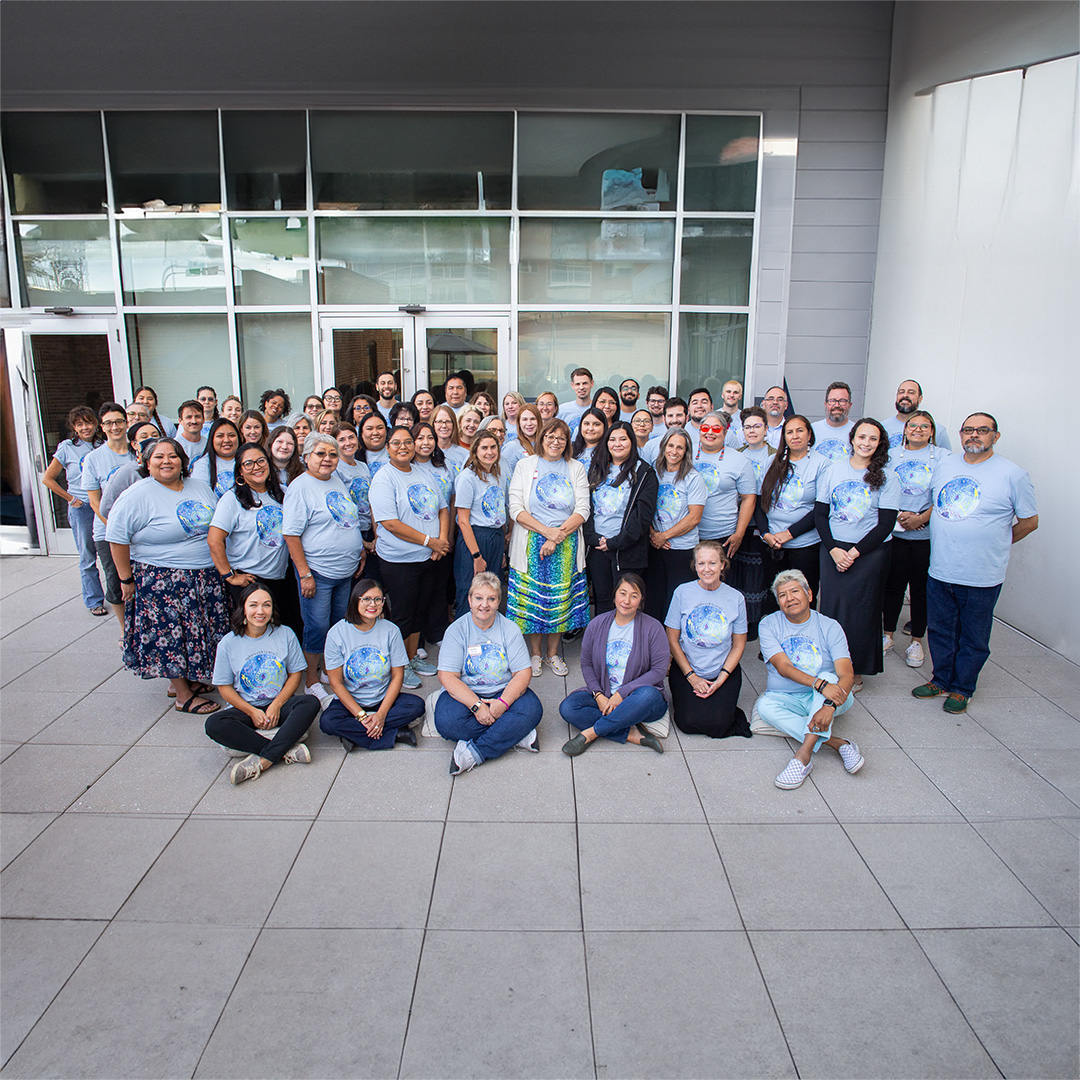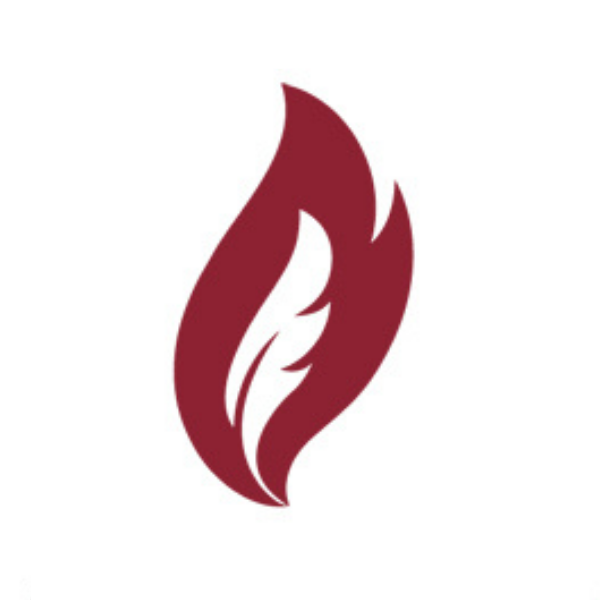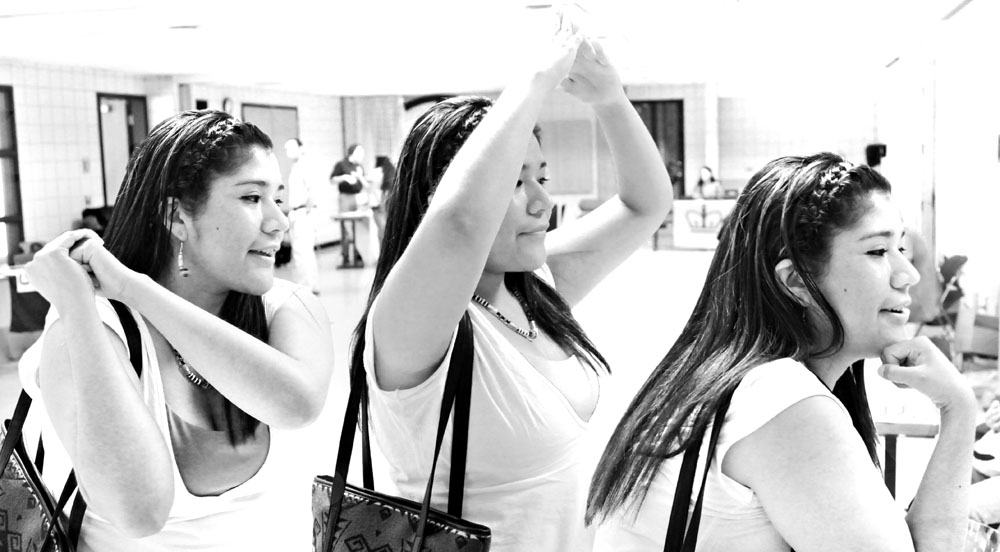
Director of CU Upward Bound Tanaya Winder
Not too long ago a friend told me I was like the wind – fierce, always in motion, and uncatchable.
For me, this time of year means travel. It means recruiting for a program I care deeply about – the University of Colorado Upward Bound Program. My trips begin with a flight to a small town like Durango, Colorado or Fayetteville, North Carolina or in the city of Albuquerque, New Mexico. Sometimes I fly all day just to end up on a little commuter plane with two-seats on each side of the aisle, and fly through turbulence to land in a different place in a new state.
There I rent an economy-sized ride not designed for the rez and drive through different communities to visit schools in the Navajo Nation, Ute reservations, and Lumbee lands. The hours can be long, GPS signals don’t always hold out, cell service is a luxury, and dust is all around. I used to feel timid driving so many hours alone, but thankfully friends or family in those areas would accompany me as co-pilots on my recruitment on the rez tours, as I call them. But by now I’ve traveled those roads enough times to know where I’m going. I appreciate being on the go. The road gives me the necessary time and solitude to reflect on where I’ve been.
Back when I was an undergraduate at Stanford University, my friends and I used to joke that being Native added an extra five units onto your class schedule. We didn’t mean this in the sense that we had actual additional courses, but when you’re strongly tied to your family, community or reservation, something was always happening to make you miss home, and that missing or yearning for the place you grew up in took time and focus away from your studies. It was like taking a class on homesickness all on its own. We worried or felt disappointed when we couldn’t attend ceremonies or celebrations back at home. Some subjects weren’t always so light–relatives were ill, or there were deaths and funerals of leaders or people you grew up with. Attending college far away on limited funds always made it difficult to go home.
That period in my life taught me lessons about being Native. To me, our heritage means perseverance. However you persevere when life, history, challenges, successes, and all that you encounter in between comes at you defines you. Change and challenge can happen to you anywhere. I experienced the greatest growth in my life during those college years as I encountered fears of not belonging, not making the grade, and not wanting to disappoint my family and community back at home.
For each of us the answer to, “How do you deal with your brick walls?” is different. Some people dealt with stereotypes based on appearance by starting a successful blog discussing it. People who have dealt with health issues on their reservation, such as diabetes, have become doctors. People who did not have the strongest sense of community growing up became community organizers or ran for tribal council. People who couldn’t attend college without scholarships became advocates for organizations that to fund education. For someone like myself, I’ve tried to combine all that I am and all that I feel I can contribute to my people. For me, it means being like the wind – always on the move.
* * *
The drive is always the same each time. I take the same routes, the same path, and generally try to set up the same presentation times at each school. I even usually stop at the same gas stations to fuel up. While I purposefully make so much of it a fixed, familiar routine, the journey is always a different one. I’m met with new faces at each school, students ready to hear about our program. Some come because they’ve heard about the program and are eager to learn more, others I can tell just want to get out of class.
Either way, I feel they’re there for a reason. Everything happens for a reason and I always say a little prayer before each presentation. I pray that their hearts and minds are open to the possibilities of what I have to say. I pray that whoever needs to hear my words that day will hear them. As a former student of this Upward Bound program I have a lot to say: it changes lives, you meet lifelong friends, you get prepared for what’s coming not only your next school year but in college, and it goes on and on and on. I can say all I want to try to further inspire the already impassioned or try to motivate the ones who lack the drive, but it doesn’t always work. As much as I hate to admit it, I’m not as young as I once was; in fact, to many of the students I might be on the border of being relatable. But my favorite part of these trips is not hearing my own words, but those of our current students who share their own experiences about how our program impacted them.
This year I was surprised by the leadership amongst our students. I arrived at high schools where our current students already printed out applications, rallied students to attend the presentation, and even had informational sheets on Upward Bound. This moved me. I was seeing young Natives in action as leaders. I know our program can’t take full credit–their parents, schools, community, family, and other experiences have helped mold them into the strong, dedicated, and driven students they are today, but I’d like to think we played a part in it.
I was and am proud of all my students. The first summer they always show up shy and even quiet, but by the end of the summer and by the time they complete our program three years later they are loud, outgoing, and charismatic. I think this is partly because some of their greatest growth occurred during the summers where we modeled a college life for them, taking classes, living in dorms, learning new things, and meeting new people. You learn how to survive away from home at Upward Bound and the program teaches you–you can create and make family anywhere.
* * *
Part of why I love working for Upward Bound is it allows me to wear many hats–I can program activities, implement new ideas, and I get to teach. Each summer I’ve taught a course whether it was Native American Literature, creative writing, or advanced creative writing. Most people don’t know that I came to the program in grief having lost a dear friend to suicide. But the program and the students saved me by giving me purpose, one that I’ve never let go of and try to work daily to see come to pass–teaching, writing, and sharing that joy and passion for words.
That first summer I worked with the first-year students on a poetry project called Many Hearts, One People: A Celebration of Poetry in Native America. Some students discovered healing through poetry, and others finally were able to find poetry accessible. I may have felt the impulse before, but it was then that I truly knew I wanted to be a writer. I wanted to write the words that not only these youth would need, but words that people would need to read to realize they aren’t alone in the world.
One other teaching experience that always stands out in my mind is one I had with a student named Joe. I’d known Joe since the summer of 2009 when he first strolled into class wearing a black heavy-metal t-shirt, buzzed-cut hair, and sunglasses covered his eyes. I’ll admit I gave in to stereotypes and judged him when he tried to keep his iPod on during class. I thought he was going to be difficult to handle. Maybe he was at first, but since then I’d like to think he and I have bonded in some way since that first summer he walked into my classroom.
Three years later in my advanced creative writing class as we went over poetry, Joe refused to say the word love. He still offered to read aloud the poem I handed out in class that day, but only if he didn’t have to say the word. I complied. So, whenever Joe got to the word love he’d pause, look at me, and wait for me to say it – love – before he continued on.
* * *
Working for my people in this way, working with the youth for an ongoing seven summers at this program has taught me the meaning of that word love more than anything. One cannot persevere in anything in life without love or support. Part of how you create the love for yourself is by pursuing your goals like applying to college, scholarships, internships, jobs, or other opportunities that will help shape who you are destined to become. But part of being Native means thinking of the bigger picture. It’s never just about you. You have to think about all those who came before you who made it possible for you to be where you are now and you have to think about who will follow you because of you.
Once you are able to grasp that self-love by honoring the gifts you’ve been given, you help others fill in their blanks. You help them find the love and support they need in their lives. For some, their greater calling may seem as uncatchable as the wind, always moving, but each of us is capable of making an impact greater than ourselves. Once we realize that, we should all embrace the wind in each of us; that inner knowing that blows us from one experience to the next. You never know whose life you were meant to make a difference in, or whose life was meant to affect yours.
Tanaya Winder is a poet, writer, artist, and educator from the Southern Ute, Duckwater Shoshone, and Pyramid Lake Paiute Nations. A winner of the 2010 A Room Of Her Own Foundation’s Orlando prize in poetry, her work has appeared or is forthcoming in Cutthroat magazine, Adobe Walls, Superstition Review, Kweli, and Drunkenboat among others. More recently, her poems from her manuscript “Love in a Time of Blood Quantum” were produced and performed by the Poetic Theater Productions Presents Company in NYC. Tanaya has taught writing courses at Stanford University, UC-Boulder, and the University of New Mexico. She has a BA in English from Stanford University and a MFA in creative writing (poetry) from UNM. Tanaya currently works as the Assistant Director for the University of Colorado-Boulder Upward Bound Program. She is also co-founder and editor-in-chief of As/Us: an Indigenous women’s literary journal. Tanaya guest lectures and teaches creative writing workshops at high schools and universities internationally. To read more of her writing or to book Tanaya for a class visit or talk please visit her personal blog http://tanayawinder.wordpress.com/

